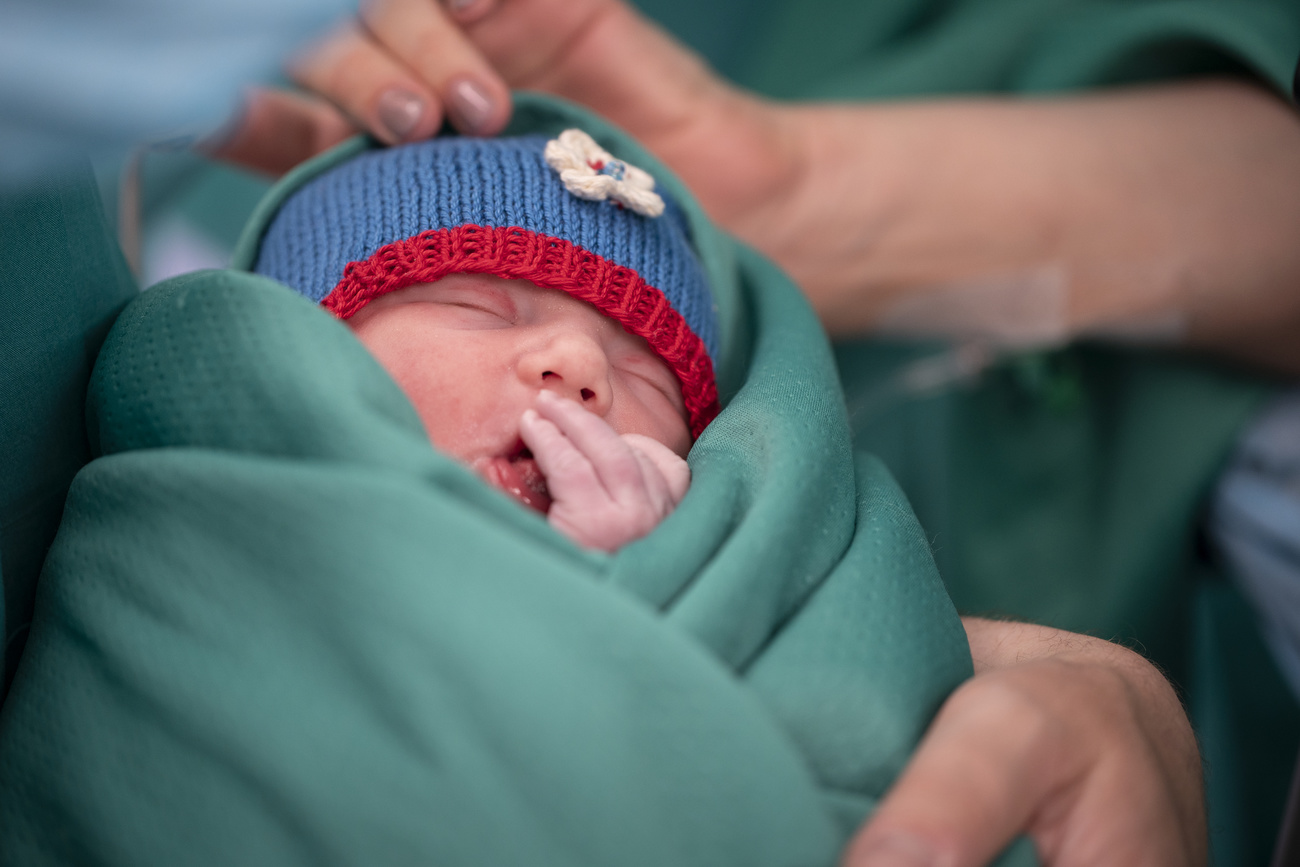
Birth rate in Switzerland hits all-time low

The number of children per woman in Switzerland reached an all-time low in 2023 at 1.33, below even the 2022 level of 1.39.
Do you want to read our weekly top stories? Subscribe here.
A total of 80,000 children were born in Switzerland last year, 2.8% fewer than in the previous year following a decline in births among both Swiss mothers and those with foreign nationality.
However, the decline was higher among Swiss women at 4.2% than among women with foreign nationality (-0.8%), the Federal Statistical Office (FSO) announced on Thursday, confirming the definitive figures of its population statistics published in April.
+ How you view the issue of low birth rates in Switzerland
A total of 56,100 children of Swiss nationality were born, and 23,900 with foreign nationality, meaning in total 2,300 fewer babies were born last year than in the previous year. This confirmed a downward trend seen since 2021. In 2022, however, the decline was much greater, with 7,300 fewer babies, or 8.1%.
At 5.1%, the decline in births in 2023 was more pronounced for women under 30 than for those over 30 (-2.1%). First births fell by 4.3% in the younger age category and by 1.7% in those aged between 30 and 39. Among women over 40, however, the figure increased by 3.2%. The average age for first births also rose slightly from 31.2 years in 2022 to 31.3 years.
The number of second births fell by 2.8% in 2023 while the number of third births fell the most, by 7.3%. The downward trend in the number of third children was observed across all age categories but particularly among mothers aged 30 to 39. In contrast, the number of births of fourth children rose slightly by 1.9% compared to the previous year.
Adapted from German by DeepL/kp
This news story has been written and carefully fact-checked by an external editorial team. At SWI swissinfo.ch we select the most relevant news for an international audience and use automatic translation tools such as DeepL to translate it into English. Providing you with automatically translated news gives us the time to write more in-depth articles.
If you want to know more about how we work, have a look here, and if you have feedback on this news story please write to english@swissinfo.ch.

In compliance with the JTI standards
More: SWI swissinfo.ch certified by the Journalism Trust Initiative



























You can find an overview of ongoing debates with our journalists here . Please join us!
If you want to start a conversation about a topic raised in this article or want to report factual errors, email us at english@swissinfo.ch.